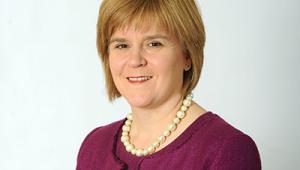A report published by the Joseph Rowntree Foundation found £69bn of public service spend is required to address the impact of poverty, while an additional £9bn was the estimated cost of lost tax revenue and additional benefits spending.
The analysis from Heriot Watt and Loughborough universities found the overall cost of poverty, as measured by the increase in spending on public services needed to allay its symptoms, is equivalent to £1,200 per person in the UK.
According to the analysis, the Department of Health is the department most affected by poverty. The report estimates that £29bn every year is spent treating health conditions associated with poverty, which accounts for over a quarter (25%) of all health spending. This is enough to pay for 126,000 nurses, and is almost enough to plug the £30bn NHS funding gap expected to arise by 2020.
Schools are estimated to spend £10bn annually mitigating the impact of poverty, or 20% of their total budget. This is normally carried out through free school meals and the pupil premium.
In the area of police and criminal justice, £9bn are needed to cover additional costs arising from the impact on poverty, which is around 35% of government spending in this area.
According the report, spending arising from poverty across children’s services including early years provision, such as free childcare for deprived two year olds, reaches £7.5bn annually. This is 40% of the early years budget, and 60% of the children’s social care budget.
Poverty also accounts for 26% (£4.6bn) of government spending on adult social care, and 37% (£4bn) of spending on housing and communities.
In addition, the research puts a figure on the costs of poverty for the public finances in the future. For example, experiencing poverty as a child makes it more likely that a person will be out of work as an adult. The report estimates this results in £13bn in lost earnings every year, causing £4bn of lost tax revenues and £2bn extra benefit spending.
The headline figure does not include the full cost of benefits aimed at preventing poverty or helping people to escape it, for example Income Support, Working Tax Credits or Job Seeker’s Allowance.
Julia Unwin, chief executive of the Joseph Rowntree Foundation, said: “It is unacceptable that in the 21st century, so many people in our country are being held back by poverty. But poverty doesn’t just hold people back, it holds back our economy too.
“Poverty wastes people’s potential, depriving our society of the skills and talents of those who have valuable contributions to make. This drags down the productivity of our economy, hindering economic growth, and reduces tax revenue.”
Tacking action to tackle the causes of poverty would mean more money to create better public services and support the economy, she stated.
One of the authors of the study, Donald Hirsch from the Centre for Research in Social Policy at Loughborough University, said: “It is hard even to estimate the full cost of poverty, not least its full scarring effect on those who experience it.
“What our figures show is that there are very large, tangible effects on the public purse. The experience of poverty… makes it more likely you’ll suffer ill health or that you’ll grow up with poor employment prospects and reply more on the state for your income.”
Next month JRF will launch a plan to address poverty in the UK, setting out what government, businesses and individuals can do to support families and communities, improve educational attainment and build skills.




















